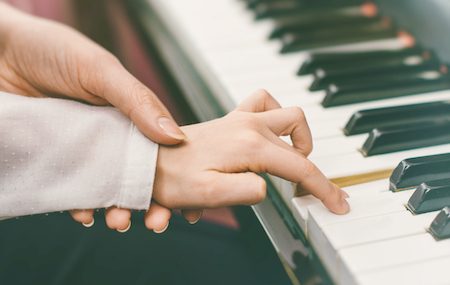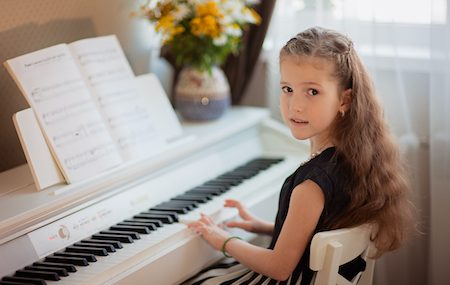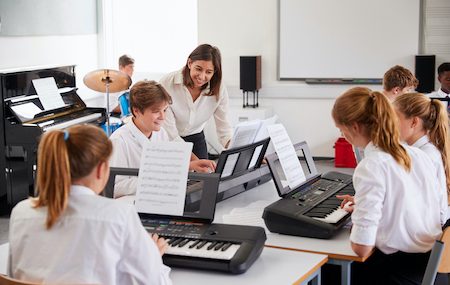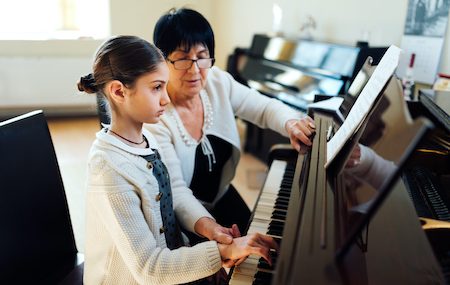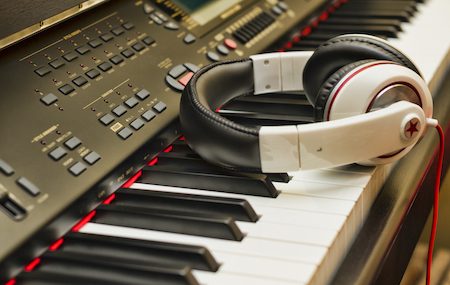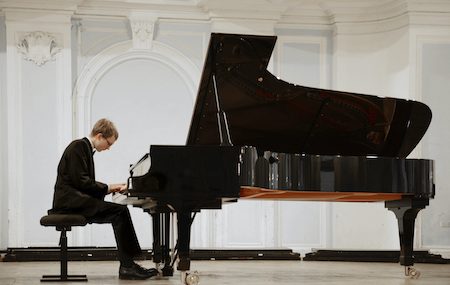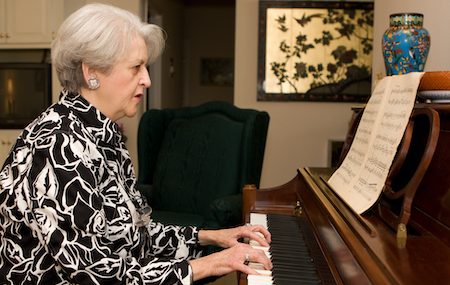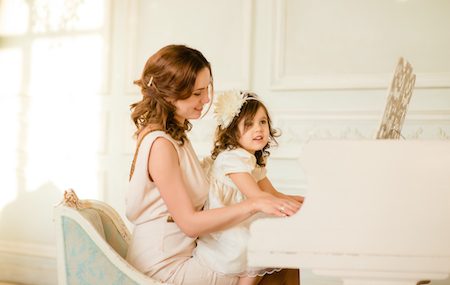Lots of people are looking for extra ways to make money. It’s called the gig economy, and many people are taking the skills they love the most and turning them into an extra income.
But teaching piano isn’t like driving your car for Uber. If you teach someone a new skill such as playing the piano, you have to give more service to each of your customers. How do you become a great piano teacher? How do you get referrals because people love what you do?
It starts by knowing how to play the piano
That sounds obvious, right? If you’re going to teach someone else how to play, you have to know how to play yourself. But it’s more than knowing the notes and being able to play a few of your favorite songs. You should have music theory down. You should understand rhythm and tone. You should have ample opportunity to play in different settings.
You should enjoy playing and listening to piano music
Do people describe you as enthusiastic when it comes to music? Then you’re on the right track to becoming a great piano teacher. The best way to teach is to be excited about your subject. And that should show up in a variety of ways. Of course, playing is important. But listening is equally so. Do you like to take trips to the symphony? Would a tour of a piano manufacturer make your holiday? You’ll show more joy in what you do if you actually like motivating people to play better themselves. So it’s vital that you can handle listening to all kinds of levels of students.
You enjoy challenges
As a piano teacher, you’re going to encounter all different levels of piano playing, with all kinds of people wanting to learn how to play. Can you deal with all of that and keep a smile on your face at the same time? Are you up for learning new ways to challenge your students and make them better? Every student will give you a unique opportunity to make them better. Your gift will be in challenging them to make them love playing piano a little bit more. Are you up for that challenge?
You have a plan
Where do you see yourself in a year? In five years? Are you doing this solely for pocket change, or is this something you want to do for life? A great piano teacher can see teaching as a part of their lives for the long haul. They see themselves in the audience of their students, happy they’ve contributed to making their lives better. They have a plan for reaching out and connecting different levels of piano players in lots of different ways.
It takes seeing your studio in full color, and building and upgrading along the way. It takes seeing where your students will come from, and finding new ways of connecting. It takes continually learning to find the right resources and using them to make each of your students better.
Are you up for that challenge?
